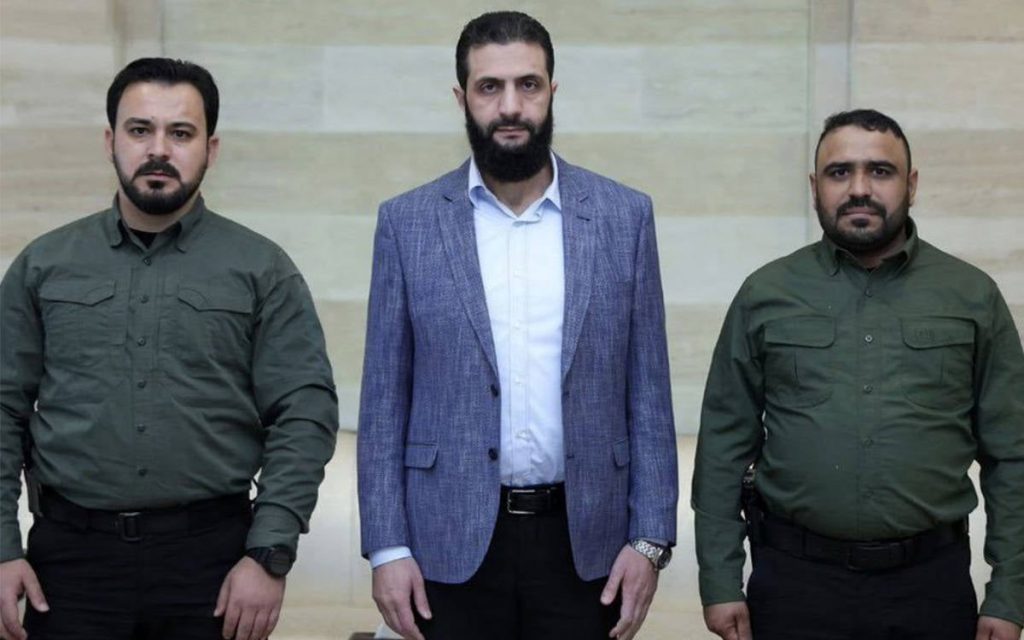The Council of the European Union has taken decisive action by imposing sanctions on three groups linked to the Syrian National Army (SNA) and two of their commanders. This move stems from their involvement in ethnic cleansing and violent attacks focused on the Alawite community in Syria’s western coastal regions, particularly between March 6 and March 9, 2025. The sanctions aim to hold accountable those responsible for serious human rights violations during the ongoing Syrian conflict.
| Article Subheadings |
|---|
| 1) Sanctions Overview and Context |
| 2) Human Rights Violations Detailed |
| 3) Key Figures and Their Roles |
| 4) Political Connections in Turkey |
| 5) Implications of the Sanctions |
Sanctions Overview and Context
The Council of the European Union released a statement on May 28, 2025, detailing its decision to include the Sultan Suleiman Shah Brigade led by Mohammad Hussein al-Jasim (also known as Abu Amsha), the Hamza Division under Sayf Boulad Abu Bakr, and the Sultan Murad Division in their sanctions list. The sanctions reflect the Council’s growing concern over persistent reports of ethnic cleansing and targeted violence against the Alawite community in Syria’s coastal regions, particularly in the provinces of Latakia and Tartus, as well as the rural areas surrounding Hama and Homs. The escalation of violence, particularly in early March 2025, has prompted the European Union to act decisively to address the ongoing human rights crisis.
Human Rights Violations Detailed
The sanctions were imposed due to documented human rights violations attributed to these groups and their leaders. Following a thorough investigation, the Council cited numerous incidents involving arbitrary killings, torture, and forced displacement targeting civilians, particularly members of the Alawite community. Evidence indicates that the Sultan Suleiman Shah Brigade participated in violent actions against civilians during this period, resulting in significant casualties and exposing the gravity of the human rights abuses occurring in the region. These actions reflect a broader pattern of violence that has plagued Syria during the ongoing civil war.
Key Figures and Their Roles
The two main figures, Mohammad Hussein al-Jasim and Sayf Boulad Abu Bakr, have played pivotal roles in orchestrating these crimes. Al-Jasim, as the head of the Sultan Suleiman Shah Brigade, has led his unit in violent missions against various civilian populations, inciting fear and chaos. Under his leadership, the brigade has committed serious breaches of human rights, including arbitrary executions. On the other hand, Sayf Boulad Abu Bakr, leader of the Hamza Division, has overseen numerous instances of torture and forced displacement, particularly in detention centers, where he has been accused of horrific abuses against civilians.
Political Connections in Turkey
Both Al-Jasim and Abu Bakr maintain strong political and economic ties within Turkey. Their affiliations have raised concerns regarding the extent of Turkish support for their operations in Syria. Notably, both men are of Turkmen ethnicity and have been seen alongside prominent Turkish political figures such as Devlet Bahçeli, leader of the Nationalist Movement Party (MHP). Their relationships hint at a potentially complex web of alliances that tie their military actions directly to Turkish state interests. The implications of such associations extend beyond Syria and highlight the influence of foreign powers in the ongoing conflict.
Implications of the Sanctions
The sanctions aim to curtail the military and financial capabilities of these commanders and their affiliated groups, thus sending a strong message against impunity for human rights abuses. By holding accountable those responsible, the European Union seeks not only to discourage further violence but also to pave the way for accountability and justice for the victims. This move highlights the EU’s commitment to human rights and its ongoing struggle to exert influence in the volatile landscape of the Middle East. The ramifications of these sanctions could represent a new phase in addressing the complexities of the Syrian conflict, with international stakeholders increasingly recognizing the necessity for accountability.
| No. | Key Points |
|---|---|
| 1 | The EU imposed sanctions on three groups associated with the Syrian National Army. |
| 2 | The sanctions are a response to ethnic cleansing and human rights violations against the Alawite community. |
| 3 | Key figures include Mohammad Hussein al-Jasim and Sayf Boulad Abu Bakr, both accused of severe abuses. |
| 4 | These commanders have prominent political and economic ties in Turkey, impacting their operations. |
| 5 | The sanctions aim to hold accountable those responsible for human rights violations in Syria. |
Summary
The recent sanctions imposed by the Council of the European Union on organizations and individuals linked to the Syrian National Army represent a significant step toward addressing the ongoing humanitarian crisis in Syria. By targeting those perpetuating human rights violations, particularly against the Alawite community, these measures not only serve as a means of accountability but also embody the EU’s commitment to the protection of human rights amidst the complex political landscape of the Middle East. The implications of these actions may mark a pivotal chapter in the pursuit of justice for victims of the Syrian conflict.
Frequently Asked Questions
Question: What prompted the EU to impose sanctions on these groups?
The sanctions were imposed in response to documented cases of ethnic cleansing and severe human rights violations, particularly targeting the Alawite community in Syria’s western regions.
Question: Who are the main figures affected by these sanctions?
The main figures include Mohammad Hussein al-Jasim, leader of the Sultan Suleiman Shah Brigade, and Sayf Boulad Abu Bakr, leader of the Hamza Division, both accused of serious human rights abuses.
Question: What is the significance of the political connections held by these commanders in Turkey?
Their political connections suggest a support network that extends beyond Syrian borders, indicating possible implications for Turkey’s involvement in the ongoing conflict and the operations of these groups in Syria.


